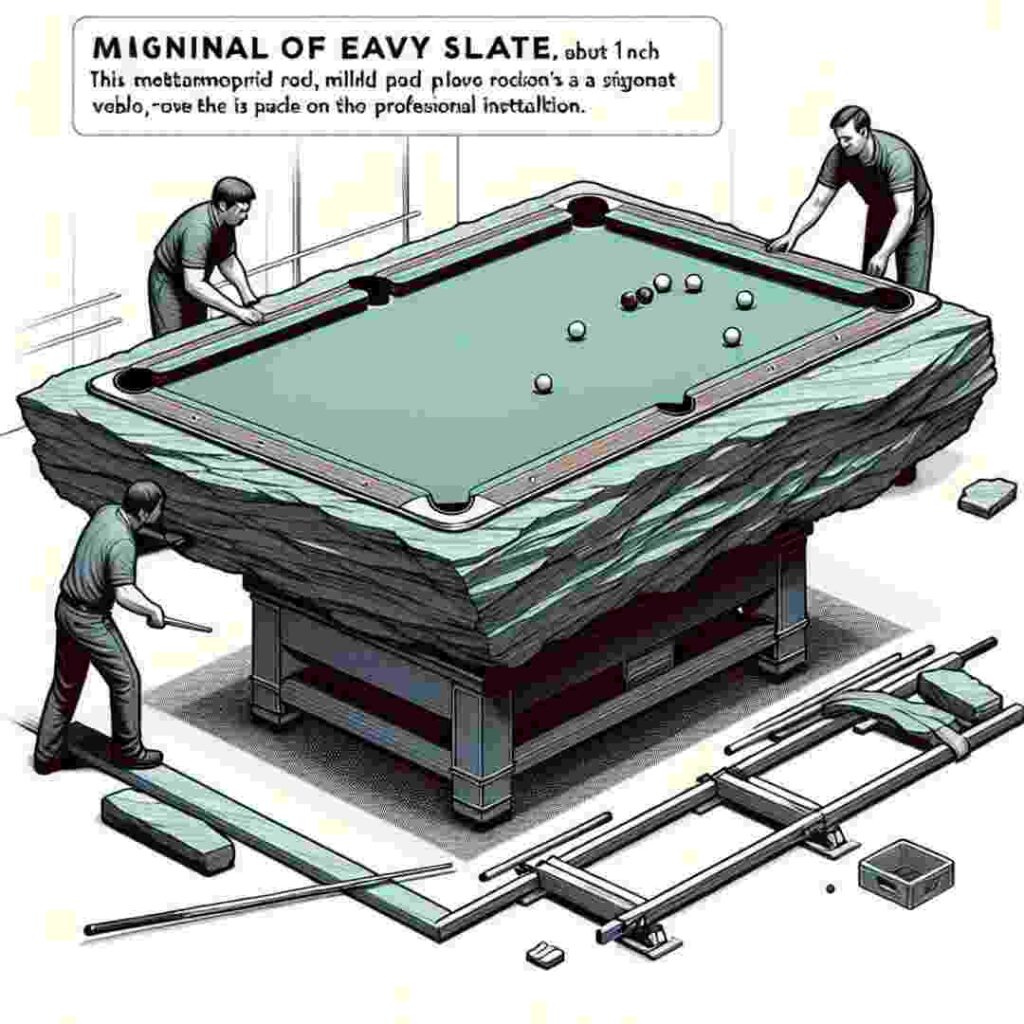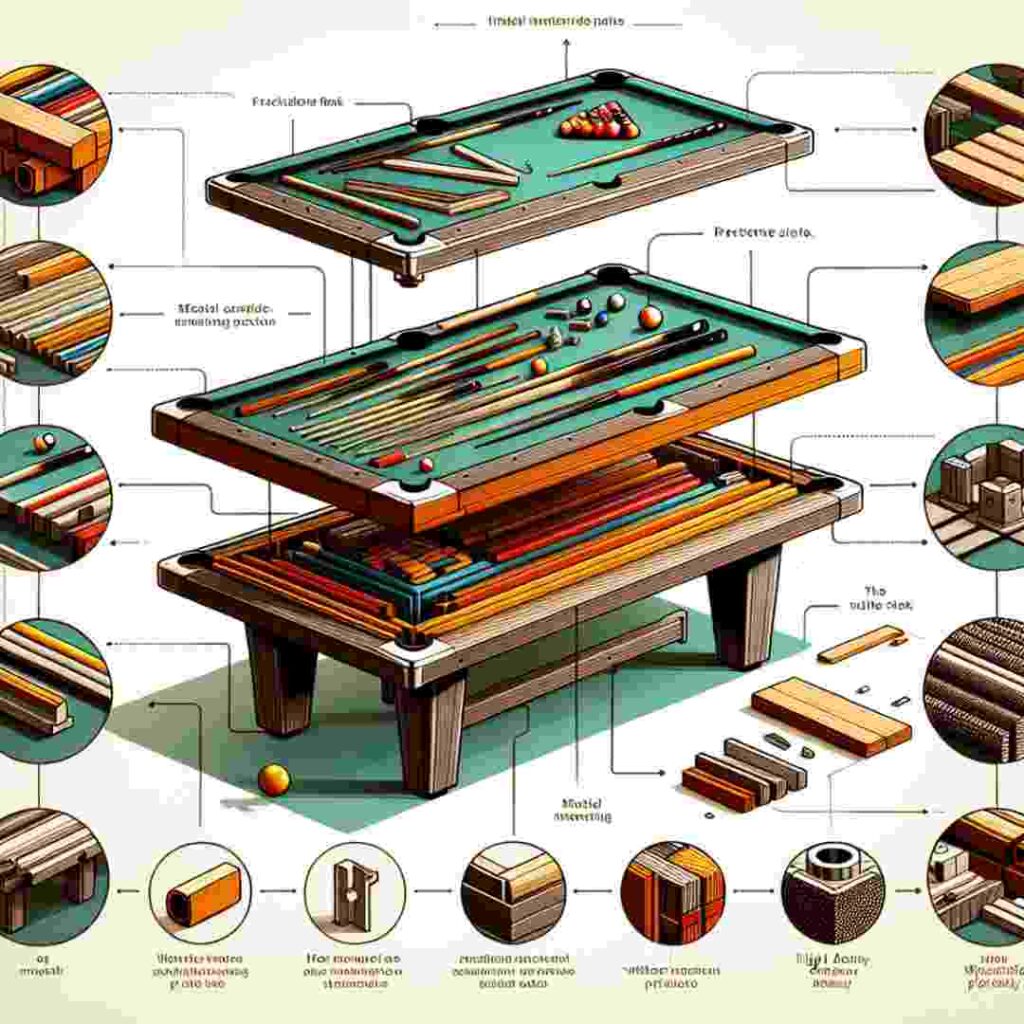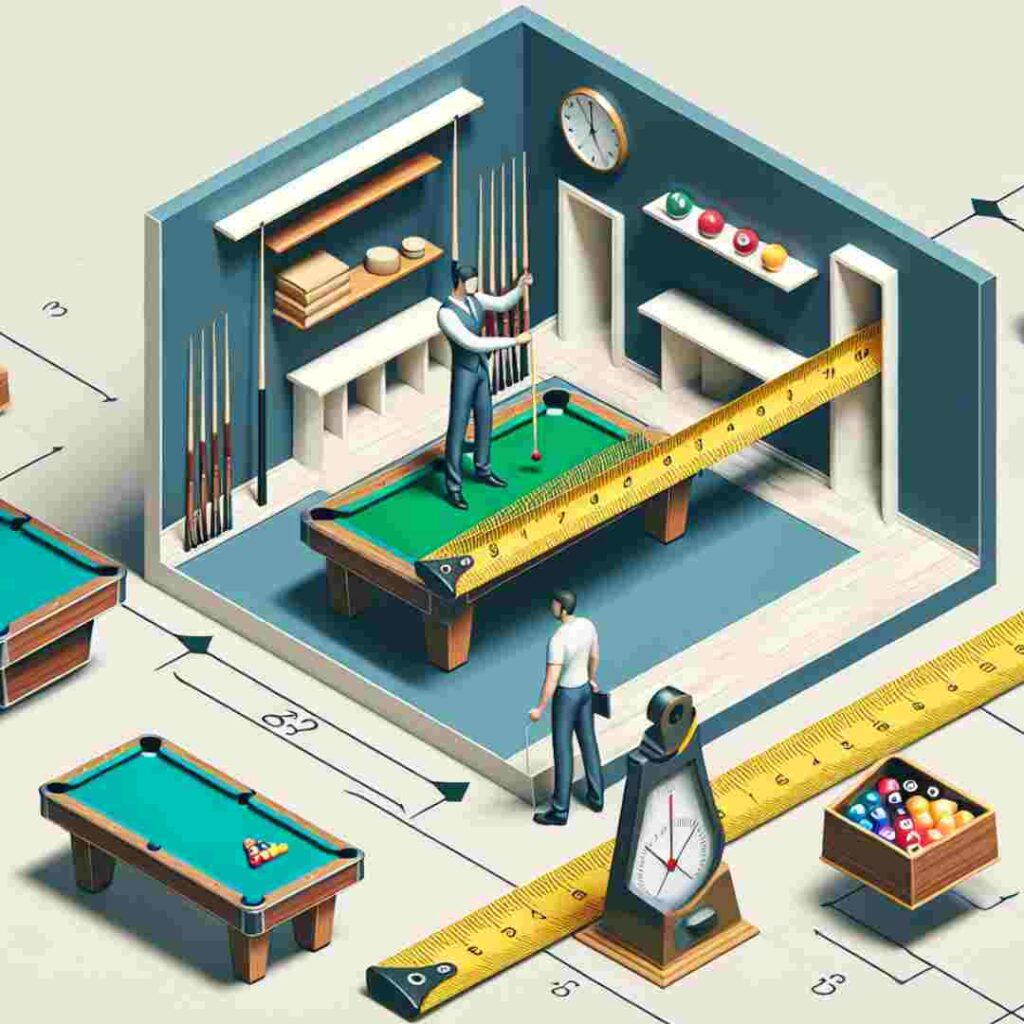Have you ever wondered why moving a pool table feels like moving a mountain? The sheer weight of a pool table is often underestimated until you’re faced with the daunting task of relocating it. Understanding how much a pool table weighs, whether you purchase one or reorganize your game room. This post will explore the factors contributing to a pool table’s weight and why this knowledge is essential for any enthusiast or homeowner.
In this comprehensive guide, we’ll break down the elements that affect the weight of pool tables, from the materials used in construction to the different types and sizes available. You’ll also learn about the implications of a pool table’s weight on installation, maintenance, and gameplay. By the end, you’ll understand what to expect when dealing with these hefty yet entertaining fixtures.
Understanding Pool Table Construction
Pool tables are intricate structures that combine several materials to create the perfect playing surface. Each component contributes to the overall weight of the table, but the slate bed, frame, and legs primarily contribute to the substantial mass. Slate is a dense material used in most high-quality tables to ensure a smooth and level playing field.
The frame and legs are typically made of solid wood or a combination of wood and metal, adding to the table’s sturdiness and weight. High-end pool tables often feature ornate woodwork and detailing, which can further increase their weight. The choice of materials affects the table’s durability and ease of transport and setup.
Understanding these construction basics helps you appreciate why pool tables are so heavy and what you must consider if you plan to set one up in your home or business.
How Slate Affects Pool Table Weight

Slate is the primary reason for the significant weight of most pool tables. This metamorphic rock is preferred for its flatness and ability to be finely milled, making it ideal for a level playing surface. Most pool tables use a slate thickness of 1 inch, though some may go up to 1.5 inches for professional-grade tables.
A single piece of slate can weigh hundreds of pounds. Three-piece slate tables, familiar in full-size models, can weigh nearly 500 pounds just for the slate alone. The slate’s weight contributes to the table’s stability, ensuring it remains stationary during intense games.
This hefty component requires careful handling and professional installation to balance the table perfectly. Consider the weight of the slate when planning the placement of your pool table, as it may affect flooring and support structures.
Comparing Different Pool Table Sizes
Pool tables come in various sizes, each with its specific weight range. Standard sizes include 7-foot, 8-foot, and 9-foot tables, with professional tournament tables typically measuring 9 feet. The size you choose will significantly influence the overall weight of the table.
A 7-foot table, often called a “bar table,” is the lightest option, although it can still weigh upwards of 700 pounds. An 8-foot table, popular for home use, generally weighs 800 to 1,000 pounds. Finally, a 9-foot table, favored for professional play, can exceed 1,200 pounds.
The size you select should fit your space and handling capabilities, as larger tables are more challenging to transport and install.
The Role of Materials in Pool Table Weight

Beyond slate, other materials used in pool table construction also contribute to its hefty nature. Frames and legs are commonly crafted from wood such as oak, maple, or mahogany, each chosen for durability and aesthetic appeal.
Often integrated into the frame or as support for slate, metal components add to the table’s weight and structural integrity. Tables designed for outdoor use might employ weather-resistant materials like aluminum or high-density polyethylene, which, while lighter than wood, still add significant weight.
Every material choice impacts the table’s final weight and can influence performance and longevity. Consider these aspects carefully when selecting a pool table to suit your needs and environment.
Pool Table Weight and Room Requirements
Understanding the weight of a pool table is crucial for room preparation. The weight may affect your flooring, especially if set up on upper levels. Ensure that your floor can support the weight without causing damage or instability.
Spacing is another critical factor. The heavier the table, the more permanent its placement tends to be. Thus, ensure ample room around the table for players to move freely and cue without constraints. Professional installation services can help assess the best location in your home or venue. It’s not just about the weight; it’s about accommodating it to enhance the playing experience while ensuring safety and functionality.
Moving a Heavy Pool Table

Given its substantial weight, relocating a pool table is no small feat. Hiring professional movers experienced in handling such large and heavy furniture is advisable. They can disassemble, transport, and reassemble the table with the precision needed to maintain its condition and balance.
Attempting to move a pool table without proper expertise can damage the table, flooring, and walls. Professionals have the right tools and techniques to move safely and efficiently.
Understanding the table’s weight helps you appreciate the complexities involved in relocation and underscores the importance of enlisting professional help.
The Impact of Weight on Gameplay
The weight of a pool table also impacts gameplay, offering stability and a consistent playing surface. Heavier tables are less likely to shift or wobble during play, ensuring a fair and enjoyable game.
Stability is crucial for severe players relying on precise shots and consistent ball roll. The weight keeps the table anchored, allowing for accurate and repeatable gameplay. This may seem less critical for casual players, but even they can benefit from the enhanced experience provided by a well-balanced table. The weight plays a crucial role in delivering professional-level enjoyment to all players.
Choosing the Right Pool Table for Your Space

Selecting the right pool table involves considering its size and weight and how these factors fit within your space. Assess your room dimensions to ensure the table fits comfortably and allows unobstructed play.
Remember that a smaller, lighter table might be more manageable for home use, while a larger table is better suited for dedicated game rooms or commercial spaces. Evaluate your needs and preferences, balancing them with practical weight and space management considerations.
Your choice should offer the best compromise between your environment’s playing experience and practical usability.
The Importance of Professional Installation
Due to the significant weight of pool tables, professional installation is highly recommended. Experts manage the heavy lifting and ensure the table is perfectly leveled and set up for optimal play.
They have the tools and expertise to handle the intricacies of assembling and balancing the table, challenging tasks for untrained individuals. The investment in professional installation pays off in enhanced gameplay and table longevity.
Consider this an essential step in acquiring a pool table, as it ensures you achieve the best possible setup for your space.
Maintaining Your Pool Table’s Integrity

Regular maintenance is vital to preserve the condition and performance of your pool table. Given its weight, it’s less prone to accidental shifts, but it’s still crucial to check for any signs of wear or imbalance over time.
Dust and clean the surface regularly, and inspect the table for levelness, particularly if you notice any gameplay changes. Regularly scheduled professional checks can help catch issues early, keeping your pool table in top condition. Attend these maintenance tasks diligently to protect your investment and maintain the integrity of your playing experience.
Conclusion
Understanding how much a pool table weighs is essential for anyone considering adding one to their home or business. The weight impacts not only the logistical aspects of installation and maintenance but also the quality of gameplay. Whether you’re a casual player or a seasoned pro, knowing what to expect from a pool table’s weight helps you make informed decisions and enjoy the game to its fullest. For those looking to explore pool tables more or are interested in professional installation services, numerous resources, and experts can assist you in this venture. With the right table and support, you can elevate your game room and enjoy countless hours of entertainment.











